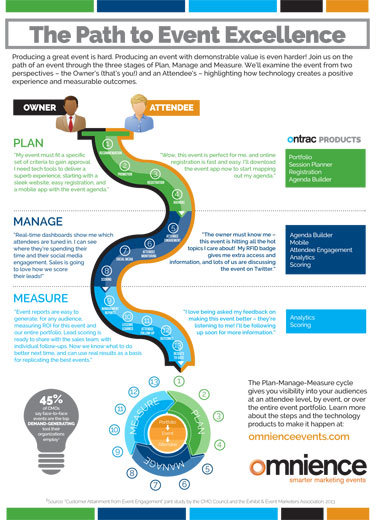5 social media marketing mistakes to avoid when planning your next event
This week, we are featuring a guest blog written by Dean Ronnie, a UK-based marketing professional working for Miromedia on behalf of Conference Care.
For those planning an event, social media marketing is a must. The changing landscape of technology means that all kinds of people are tapped into social media channels. Making effective use of these channels, once you’ve organised your conference facilities, you will be able to reach out to those that are potentially interested in your event, connect with those definitely interested in your event and update those who have attended your events in the past.
While social media is an amazing tool and has dramatically changed the landscape of event marketing, there are however certain faux pas you can make when it comes to promoting your event. Below we list the 5 social media marketing mistakes to avoid when planning your next event.
Talking too much and not listening enough
While you’re in the business of promoting your event, your status updates and tweets shouldn’t all be one-way traffic. Talk less and listen more. Treat social media as a platform for communication and listen to what people are saying. If people are commenting on your status updates and replying to your tweets asking questions, be sure to answer them. Also listen to what other people are saying via these social channels and engage in conversation. Comment on posts and reply to tweets that you find interesting and you will find that you will be naturally promoting your event rather than it appearing forced. No one likes an endless stream of updates without any engagement.
Not using hashtags effectively
There is enormous power in the humble hashtag. Hashtags allow you to easily categorise your posts and make them easier for people to find.
Come up with a hashtag that describes your event and you will have a great way for people to reference it on social media without having to type in the full name every time. Spend the months, weeks and days leading up to the event promoting this hashtag and try to get it trending, excellent for spreading brand awareness.
When choosing a hashtag choose a hashtag that is evergreen. Avoid using hashtags that refer to a specific year as it will quickly become out of date.
Hashtags are also a great of finding out what other people are talking about and will allow you to jump on board with the conversation by using the same hashtag.
Speaking once and then going quiet
Dipping in and out of social media should be avoided. Rather than posting once and then leaving it months before you post again, keep it consistent. Even if you haven’t got anything to promote, ensure you are still posting. Neglecting to do this will mean people quickly forget about you and what you have to offer. Bear in mind the old adage “out of sight, out of mind” and think about how not constantly communicating could deem this relevant to your business.
Not integrating with other digital channels
Don’t treat each social media channel as an island on its own, embrace the fact that these channels are designed to be connected. Social media works best when integrated as part of your overall marketing strategy. Ensure you are making reference to your social media channels on your website and that you are linking back to your website in your social media efforts. When it comes to email marketing, ensure that you are pointing recipients in the direction of your social media channels as a place in which they can find out more information.
Neglecting social media when it comes to the actual event
It sounds ludicrous but with all of the other responsibilities and stresses of the actual event, social media might not get a look in. This however, shouldn’t be the case. Social media shouldn’t just be for before and after an event. It should be for during too.
Ensure you are posting content as it happens and with it, encouraging attendees to post their content too. Doing this will be of benefit to those who were unable to attend your event as they will be able to get a flavour of your event without actually having to be there. This may encourage purchases without people even having to attend.
Not only will sharing content as it happens be beneficial to those not attending it will also be of benefit to those who did attend but didn’t get to experience every area of your event.
Share photos, share videos, share blog posts summarising the goings-on from your event, there’s no limit to what you should be sharing from your event on social media. You could also perhaps consider live streaming certain elements of your event as this will create the ultimate experience for those who couldn’t attend and will be the next best thing to actually being there.
Any content you share won’t just be good for the duration of the event, it will also be able to be utilised for months to come and will allow you to recreate the event every time you post.





